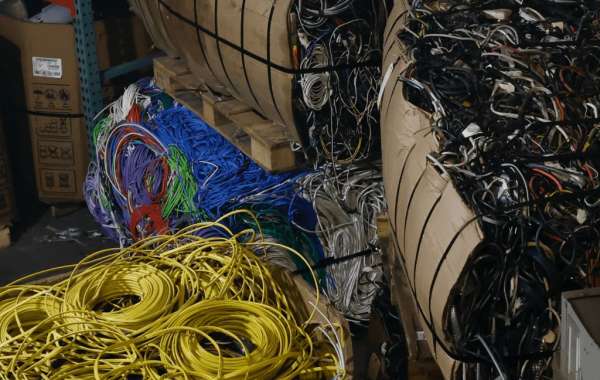Cleveland metal recycling is an essential part of the city's sustainability efforts, helping residents and businesses manage waste responsibly. By recycling metals such as steel, copper, aluminum, and brass, recycling facilities reduce the demand for virgin materials, conserve resources, and minimize environmental impact. Beyond environmental benefits, Cleveland metal recycling also supports economic growth by providing valuable raw materials for industries.
What Is Metal Recycling?
Metal recycling is the process of collecting, sorting, and repurposing scrap metal into reusable forms. Scrap metals are sourced from old appliances, vehicles, construction sites, and industrial equipment. Instead of discarding these materials, recycling centers process them into high-quality raw materials for manufacturing, enabling a circular economy that reduces waste.
Types of Metals Commonly Recycled in Cleveland
Cleveland metal recycling facilities handle a wide range of ferrous and non-ferrous metals, including:
- Steel: Commonly sourced from building materials, appliances, and vehicles.
- Copper: Often found in electrical wires, plumbing systems, and electronics.
- Aluminum: Used in cans, construction materials, and automotive parts.
- Brass and Bronze: Popular in plumbing fixtures and machinery components.
These metals are in high demand because they retain their properties even after being recycled multiple times, making them a sustainable alternative to newly mined resources.
Why Cleveland Metal Recycling Matters
Environmental Sustainability
Cleveland metal recycling reduces the need for mining raw materials, a process that consumes significant energy and disrupts ecosystems. Recycling metals also decreases greenhouse gas emissions and reduces landfill waste, supporting a cleaner environment for future generations.
Economic Benefits
Recycled metals are cost-effective and widely used across industries such as automotive, construction, and electronics. By selling scrap metals to local recycling facilities, residents and businesses in Cleveland can generate extra income. Additionally, metal recycling creates jobs in collection, sorting, and processing.
Energy Conservation
Recycling metals uses far less energy compared to producing materials from virgin ore. For instance, recycled aluminum uses only 5% of the energy required to produce aluminum from bauxite ore. This significant energy savings highlights the efficiency of Cleveland's recycling systems.
How Cleveland Metal Recycling Works
- Collection: Scrap metal is collected from industrial facilities, residential areas, and commercial properties.
- Sorting: Metals are separated into categories such as ferrous (containing iron) and non-ferrous (non-magnetic) materials.
- Processing: Impurities are removed, and the metals are shredded or compressed to optimize handling and transport.
- Melting and Repurposing: Cleaned metals are melted down in specialized furnaces, transforming them into raw materials for new products.
This systematic process ensures that Cleveland's recycling initiatives remain efficient and environmentally friendly.
How Cleveland Residents Can Contribute
Residents and businesses in Cleveland can contribute to recycling efforts by properly disposing of scrap metal. Recycling centers accept a wide variety of items, from household appliances to industrial debris. Selling scrap metal not only offers financial benefits but also promotes responsible waste management.
Conclusion
Cleveland metal recycling is an important initiative that supports both the environment and the local economy. By transforming scrap metal into reusable resources, recycling facilities contribute to reducing waste, conserving energy, and protecting natural habitats. Businesses and residents who participate in these efforts are helping to create a sustainable future for Cleveland while benefiting financially and environmentally. Together, Cleveland can continue to lead the way in promoting recycling as a cornerstone of its commitment to sustainability.




